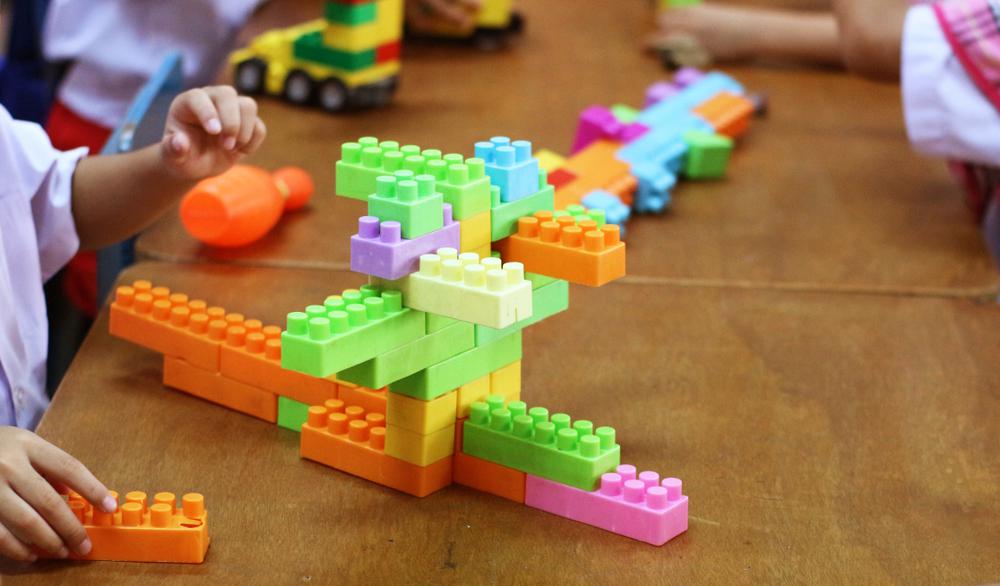Geometry worksheets activities for Ages 3-5
7 filtered results
-
From - To
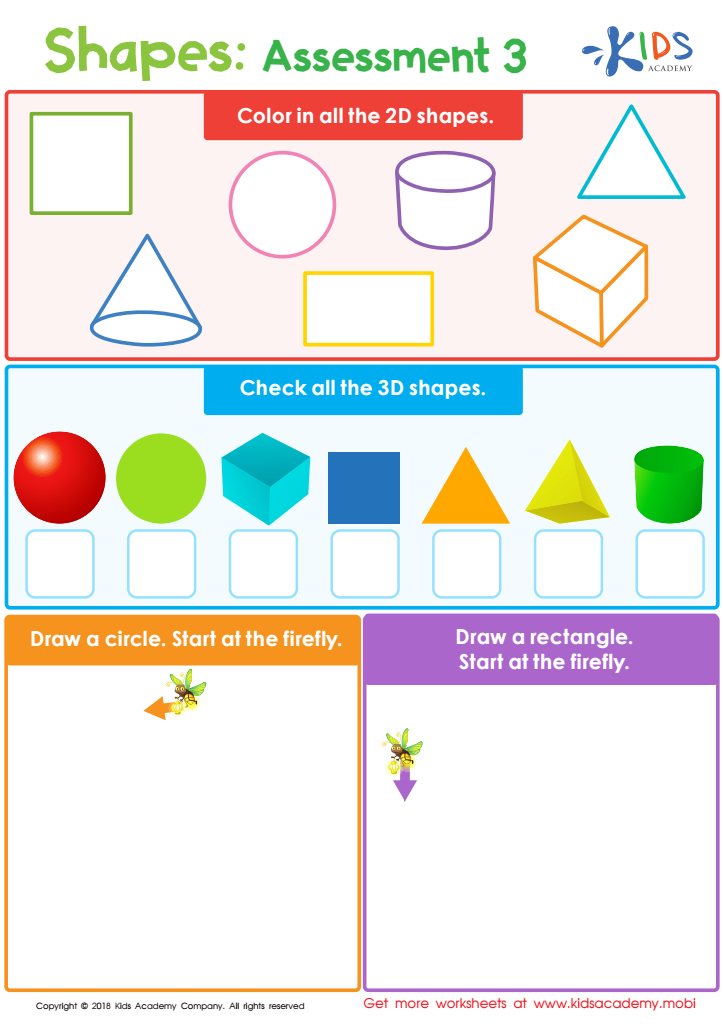

Shapes: Assessment 3 Worksheet
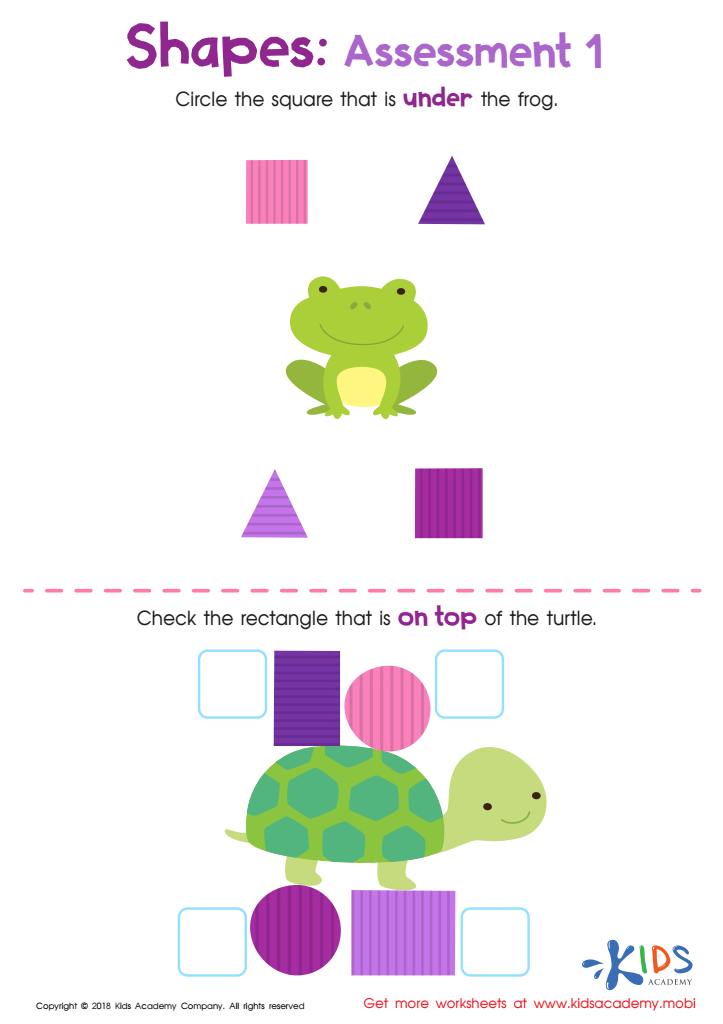

Geometry – Assessment 1 Worksheet
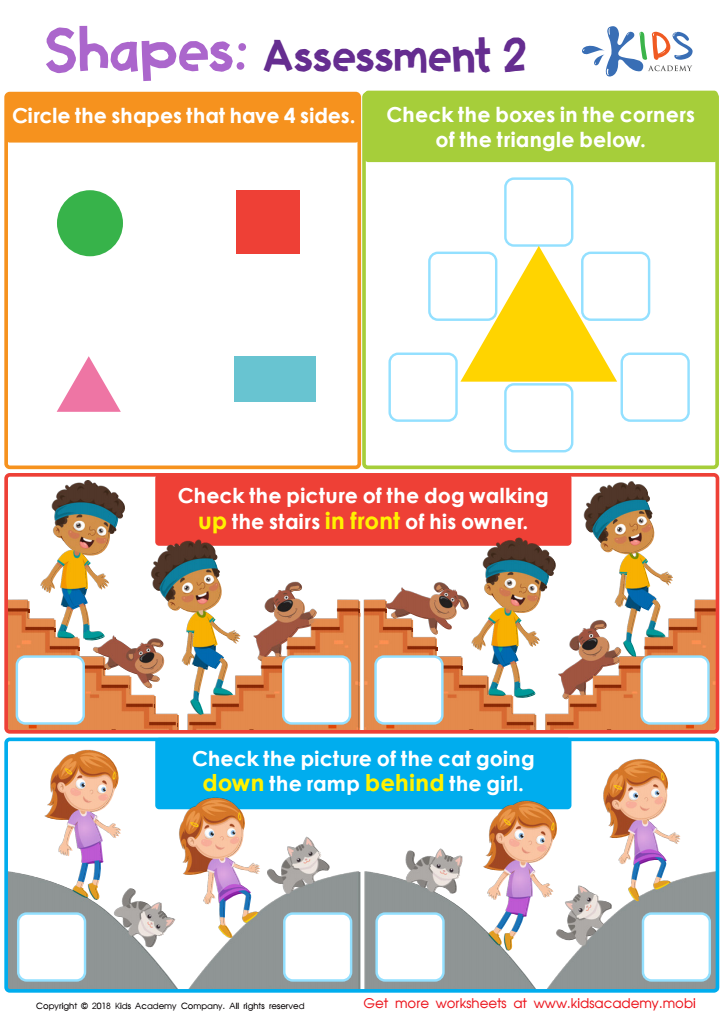

Shapes: Assessment 2 Worksheet
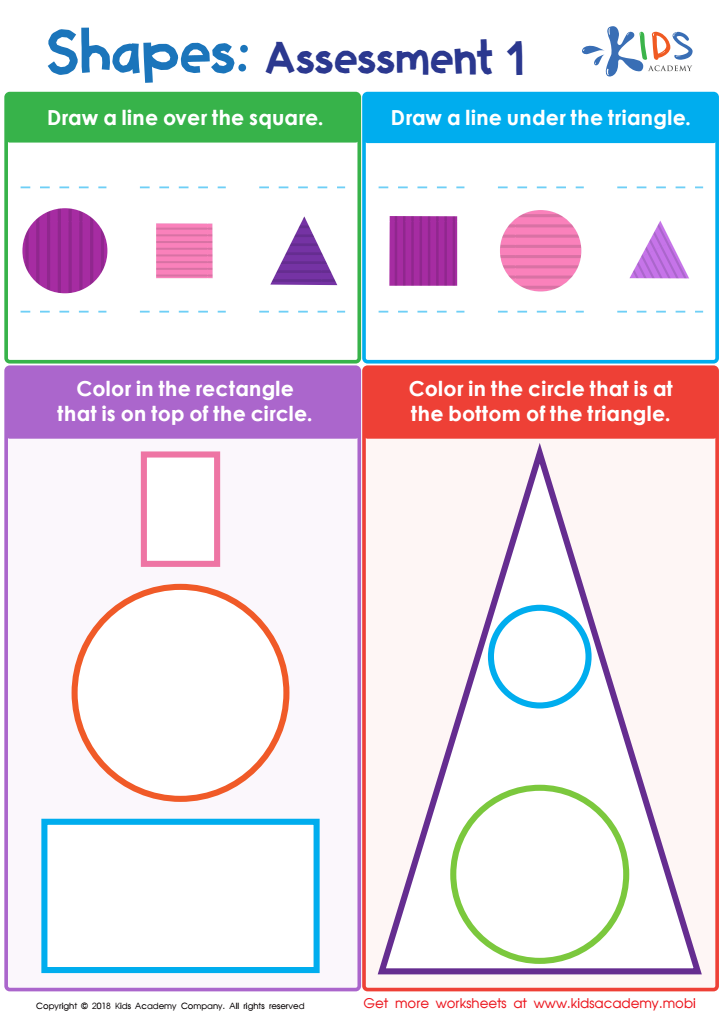

Shapes: Assessment 1 Worksheet
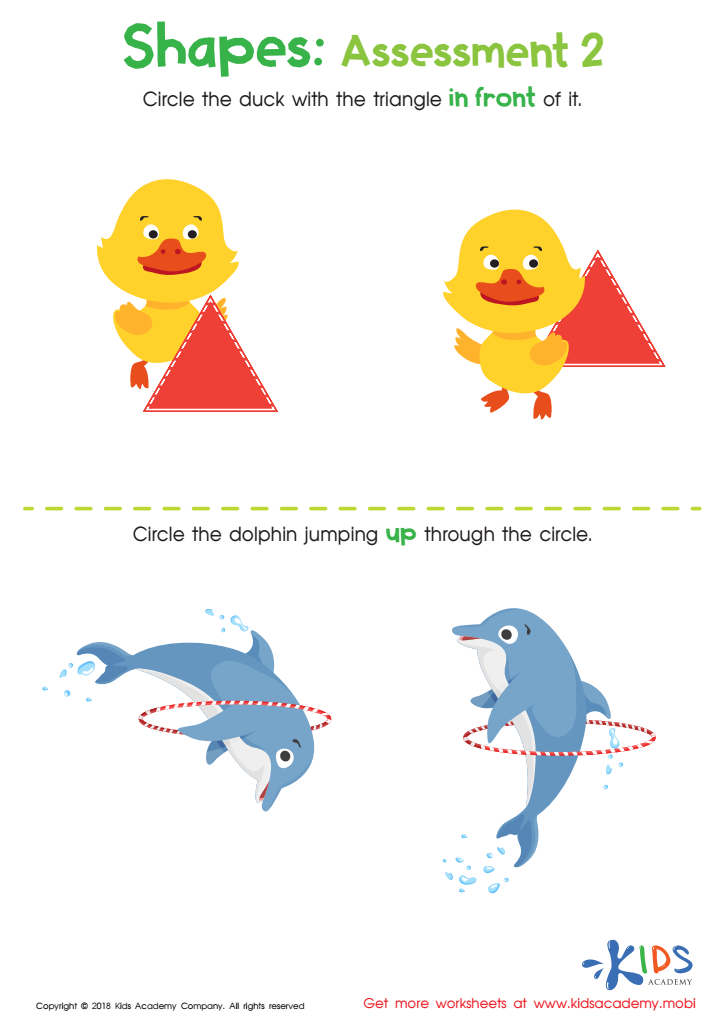

Geometry – Assessment 2 Worksheet
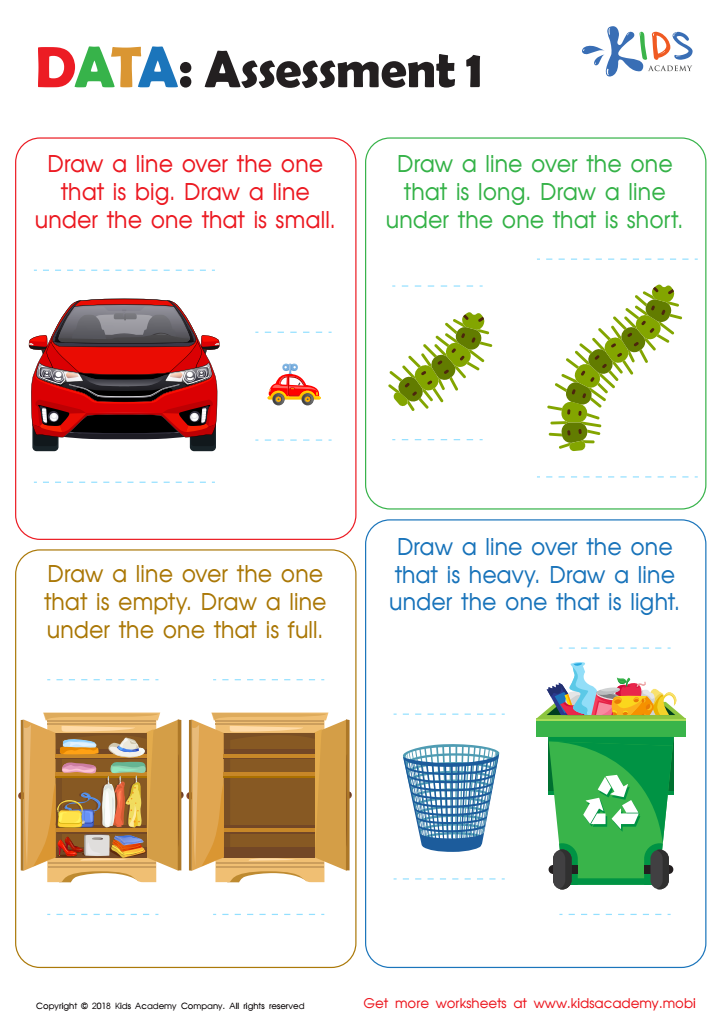

Data: Assessment 1 Worksheet
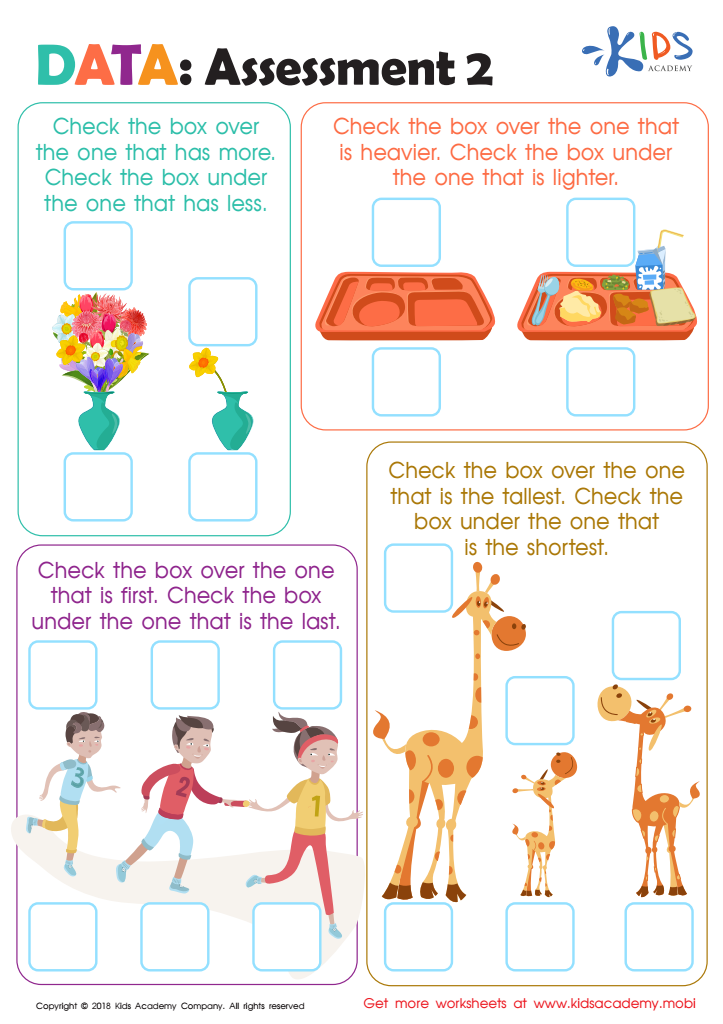

Data: Assessment 2 Worksheet
Geometry worksheets activities serve as an essential tool in the enrichment and understanding of geometric concepts among students of various ages. These activities, carefully designed and structured, cater to a wide range of learning styles, making the abstract and often complex ideas in geometry more accessible and engaging. Here's why geometry worksheets activities stand out as a beneficial resource in the learning process.
Firstly, geometry worksheets activities provide a hands-on learning experience. Geometry, being a subject that involves shapes, sizes, and the properties of space, becomes much more comprehensible when students can interact with these concepts directly. Through drawing, measuring, and visualizing exercises, students can more effectively grasp the relationships between different geometric figures and understand their properties in a concrete manner.
Secondly, these activities offer a structured approach to problem-solving. Geometry is not just about recognizing shapes; it involves critical thinking, logical reasoning, and the application of formulas and theorems. Geometry worksheets activities guide students through a step-by-step process, from identifying problems to formulating and executing solutions. This structured approach not only aids in the comprehension of geometric principles but also cultivates problem-solving skills that are valuable across all disciplines.
Moreover, geometry worksheets activities are adaptable to individual learning paces. In a classroom setting, students may have varying levels of understanding and different speeds at which they process information. These worksheets provide the flexibility for students to work at their own pace, ensuring that each learner can fully grasp the concepts before moving on. This individualized approach helps build confidence and promotes a deeper understanding of the subject matter.
Finally, geometry worksheets activities facilitate continuous learning and assessment. They serve as an excellent tool for both teachers and students to gauge progress. Through regular practice and feedback, students can identify areas of strength and areas that require further attention, allowing for targeted improvement.
In conclusion, geometry worksheets activities play a pivotal role in making the study of geometry a more interactive, comprehensible, and enjoyable experience. By breaking down complex ideas into manageable exercises, these activities not only enhance learning but also inspire a lasting interest in the fascinating world of geometry.
 Assign to My Students
Assign to My Students







